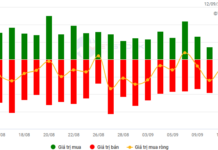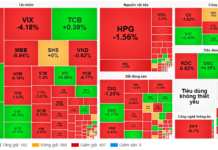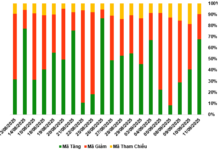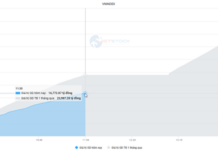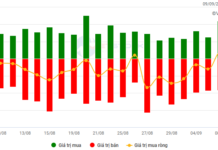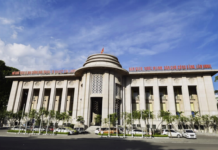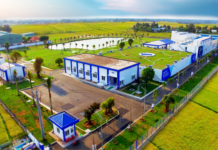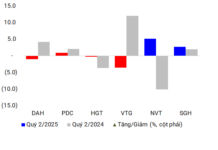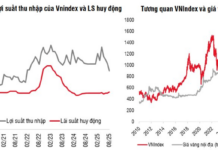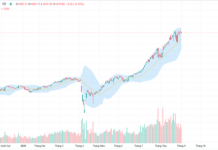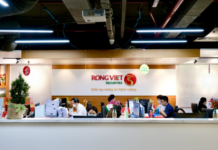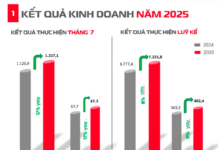Pin Hanoi Adjusts Revenue Plan Due to Storm Yagi’s Impact
Pin Hanoi has decided to reduce its production and consumption to 370 million units of various types of batteries, compared to the previous plan of 386.3 million. This decrease in output leads to an expected total revenue of only VND 469.4 billion, a reduction of VND 14.1 billion compared to the old plan (nearly a 3% drop).
However, the expected profit before tax is projected to increase by more than 8% to VND 76.5 billion, corresponding to an additional VND 7 billion increase compared to the previous plan.
Pin Hanoi adjusted its 2024 plan after a lackluster third quarter, with net profit of just over VND 15 billion, an 18% decrease from the previous year. The company attributed this to a decline in domestic sales revenue due to the negative impact of Storm Yagi in September, along with an 8% increase in wage rates compared to the same period, contributing to reduced profits.
For the first nine months of the year, PHN’s net revenue was nearly VND 342 billion, and profit before tax was about VND 62 billion, up 4% and 28% respectively compared to the same period last year. Net profit was over VND 49 billion, a 26% increase, supported by positive results in the first half.
Compared to the new plan, Pin Hanoi has achieved nearly 81% of its annual profit target. In contrast, compared to the old plan, the execution is over 89%.
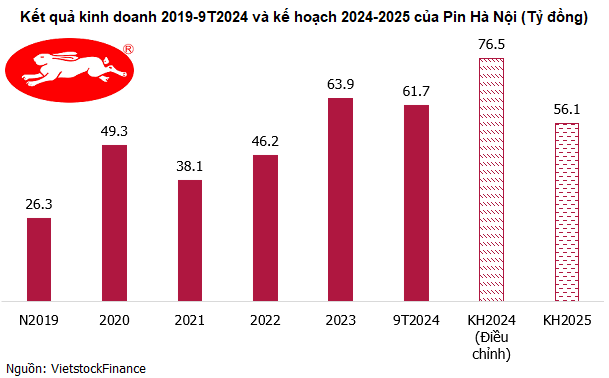
According to the Board of Directors’ resolution dated October 31, Pin Hanoi also approved the 2025 business plan, with a total revenue of nearly VND 506.6 billion, an 8% increase compared to the adjusted 2024 plan. This growth is attributed to increased production and consumption of 392.5 million units of various types of batteries. However, the expected profit before tax is VND 56.1 billion, a 27% decrease.
Stock Price Reaches Peak, More Than 2.4 Times Higher Than at the Beginning of the Year
Pin Hanoi, formerly known as Van Dien Battery Factory, was established in early 1960 and became renowned for its rabbit-branded batteries. These batteries have become a familiar household name in Northern Vietnam, once holding 100% of the market share.
Since 2010, GP Batteries International Limited, a leading consumer and rechargeable battery manufacturer in Asia, has been Pin Hanoi’s strategic partner, holding 30% of its capital. By 2020, after Vietnam Chemical Group (Vinachem) withdrew its capital, GP Batteries’ ownership increased to 49%, remaining unchanged to the present.
With the support of GP Batteries, Pin Hanoi has expanded its exports to India, Eastern Europe, Central Asia, Africa, and South America. The company also has a significant market share in Laos and Cambodia. Additionally, Habaco is entering the US market by supplying batteries to the photography equipment company Kodak.
Apart from GP Batteries, PHN has another major shareholder, Mr. Pham Van Nghia, Chairman of the Board of Directors, who holds 5% of the capital. Vinachem also currently holds 2% of PHN’s capital.
Along with positive financial results, Pin Hanoi is known for consistently paying dividends to its shareholders, with rates ranging from 20-50% in cash. In the stock market, PHN’s stock price has been trading at its peak of VND 96,000/share for a week—the highest since its listing. This price represents a more than 137% increase compared to the beginning of the year. However, the stock has been experiencing low liquidity.
| PHN Stock Price Movement from the Beginning of 2024 to Present |
The Manh
The Lucrative Post-Storm Trade in Ha Long: Easy Money, Even While Relaxing
In the aftermath of YAGI, a devastating storm that battered the coastal city of Ha Long in Quang Ninh province, a unique opportunity emerged for avid anglers. With the storm causing extensive damage to fish farms, a multitude of exotic fish species such as song, vược, and chim escaped into the open sea. This created a thrilling prospect for local fishermen, who eagerly grabbed their rods and reels in pursuit of these “monster” fish. It was not uncommon for these dedicated anglers to reap significant financial rewards, with some lucky individuals even earning tens of millions of dong each day from their remarkable catches.

